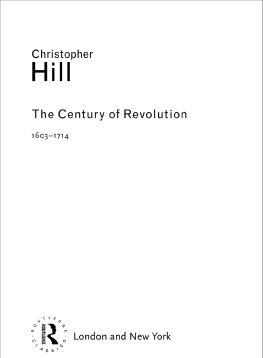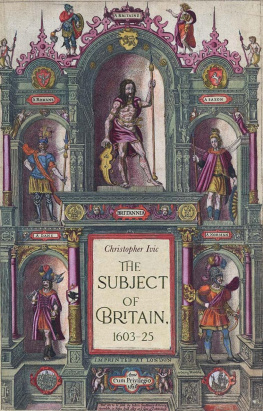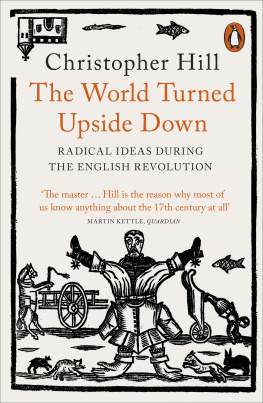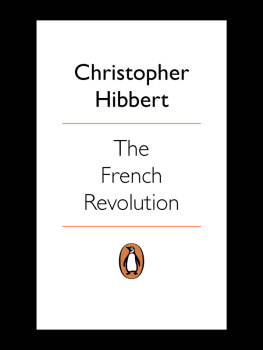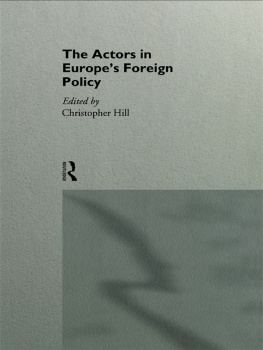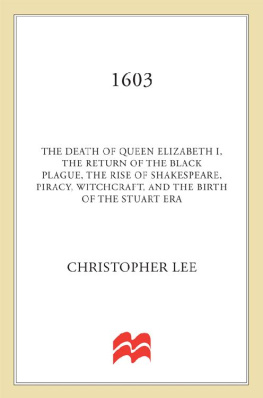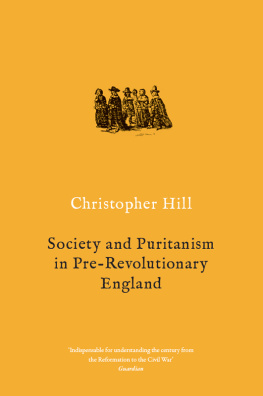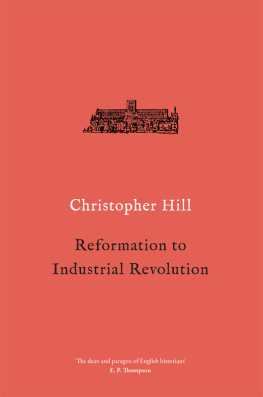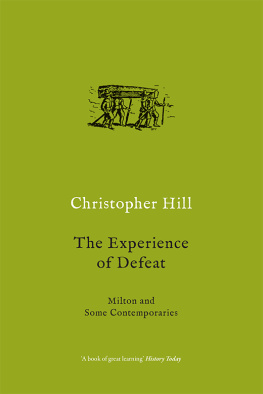Hill Christopher - The Century of Revolution: 1603-1714
Here you can read online Hill Christopher - The Century of Revolution: 1603-1714 full text of the book (entire story) in english for free. Download pdf and epub, get meaning, cover and reviews about this ebook. year: 2011, publisher: Routledge, genre: Art. Description of the work, (preface) as well as reviews are available. Best literature library LitArk.com created for fans of good reading and offers a wide selection of genres:
Romance novel
Science fiction
Adventure
Detective
Science
History
Home and family
Prose
Art
Politics
Computer
Non-fiction
Religion
Business
Children
Humor
Choose a favorite category and find really read worthwhile books. Enjoy immersion in the world of imagination, feel the emotions of the characters or learn something new for yourself, make an fascinating discovery.
- Book:The Century of Revolution: 1603-1714
- Author:
- Publisher:Routledge
- Genre:
- Year:2011
- Rating:5 / 5
- Favourites:Add to favourites
- Your mark:
- 100
- 1
- 2
- 3
- 4
- 5
The Century of Revolution: 1603-1714: summary, description and annotation
We offer to read an annotation, description, summary or preface (depends on what the author of the book "The Century of Revolution: 1603-1714" wrote himself). If you haven't found the necessary information about the book — write in the comments, we will try to find it.
The Century of Revolution: 1603-1714 — read online for free the complete book (whole text) full work
Below is the text of the book, divided by pages. System saving the place of the last page read, allows you to conveniently read the book "The Century of Revolution: 1603-1714" online for free, without having to search again every time where you left off. Put a bookmark, and you can go to the page where you finished reading at any time.
Font size:
Interval:
Bookmark:

every student will be grateful for this stimulating, vivid and sometimes provocative book.
The Times Educational Supplement
Mr Hill's style is lucid and economical. Like the Puritan preachers whom he describes, his object is not to impress, not to delight, but to convince. His immense range of reading sits lightly upon him, revealed only in the frequent, telling quotations on every aspect of seventeenth-century life One of the greatest strengths of the book is that, unlike so many in the past, it is not preoccupied entirely with the activities of a few people at the top. We are never allowed to forget the submerged part of the iceberg, the labouring poor, often on the edge of starvation, the first victims of economic depression and plague, with few rights, and for the most part kept in strict subordination to their social superiors.
The Times Literary Supplement
First published in Great Britain 1961
by Van Nostrand Reinhold (International) Co. Ltd.
Second edition published 1980
First published in Routledge Classics 2002
by Routledge
11 New Fetter Lane, London EC4P 4EE
Routledge is an imprint of the Taylor & Francis Group
This edition published in the Taylor & Francis e-Library, 2002.
1961, 1980 Christopher Hill
All rights reserved. No part of this book may be reprinted or reproduced or utilised in any form or by any electronic, mechanical, or other means, now known or hereafter invented, including photocopying and recording, or in any information storage or retrieval system, without permission in writing from the publishers.
British Library Cataloguing in Publication Data
A catalogue record for this book is available from the British Library
ISBN 0415267382 (hbk)
ISBN 0415267390 (pbk)
ISBN 0-203-78545-5 Master e-book ISBN
ISBN 0-203-67786-X (Glassbook Format)
Econ. H.R.Economic History Review
P. and P.Past and Present
H.M.C.Historical Manuscripts Commission
T.R.H.S.Transactions of the Royal Historical Society
The arrangement of this book calls for a word of explanation. In order to avoid repeating at length what can be found in many textbooks, and to have more space for attempts at explanation, I have, in the narrative chapters, given merely a bald summary of events. The reader should be patient when, for instance, he finds the Cokayne Project mentioned without explanation on p. 10. It is discussed at length on pp. 345. The index indicates where definitions of technical terms are to be found, and gives biographical details of persons not fully identified in the text. Quotations from seventeenth-century sources have been modernised. Dates are given in the Old Style. Seventeenth-century England was ten days behind the New Style used on the Continent. But I have taken the year as beginning on 1st January, not on 25th March as most seventeenth-century Englishmen usually did.
The plan of this series did not allow full documentation. When I have consciously used someone else's idea, or quoted a phrase from a historian not easily identifiable from the context, I hope I have normally given the reference in a footnote. But I have taken so much from Sir G. N. Clark, Professor W. Haller, Professor W. K. Jordan, Mr E. Lipson, Mr David Ogg, and Professor R. H. Tawney, that I can express only my general gratitude here. Extracts from Clarendon's History of the Rebellion and his Life have been included by kind permission of the Clarendon Press. I have taken advantage of hearing Professor F. J. Fisher talk about the cultivation of forests and waste lands, and of discussions with Dr Eric Hobsbawm, Mr A. L. Morton, and Mr Lionel Munby. Again and again, though this cannot be documented, I am conscious that my ideas are at least less half-baked than they would have been if I had not had to defend them in tutorial discussions with pupils, extending now over twenty-five years.
Dr J. B. Owen, Mr Lawrence Stone, and Mr Angus Walker read this book in typescript, and it has benefited greatly from their searching criticisms. The general editors of the series were encouraging but vigilant, and Mr Denis Mack Smith devoted a great deal of time to helping me to say what I meant. Mr Richard Grassby very kindly read the proofs. My greatest debt, as always, is to my wife.
1960 C.H.
I am most grateful to Mr R. Barnes, Dr G. R. Elton, Dr H. Koeppler, Professor V. de Sola Pinto, Mrs Menna Prestwich, and especially Mr John Cooper for pointing out errors in the first impression. If I have obstinately refused to accept all their good advice the blame is mine alone.
1961 C.H.
I have taken the opportunity of a new impression to correct some slips which reviewers have pointed out. I am particularly grateful for corrections suggested by Professor John Bromley and Mr Ivan Roots. I have also made some corrections arising from Professor Habakkuk's article on Interregnum finance in Economic History Review, August 1962.
1962 C. H.
During the 20 years since this book was written, a great deal of valuable work has been done on 17th-century English history. For this edition I have made a number of small revisions to incorporate what seem to me its most important conclusions, and I have added postscripts on pp. 41, 99, and 141 drawing attention to especially significant books.
I have retained diagrams 2 and 3, based on Thorold Rogers's figures, and have not replaced them by diagrams based on the more recent calculations of E. H. Phelps Brown and S. V. Hopkins, as some critics have suggested that I should. Phelps Brown and Hopkins state that, in respect of wages, until 1700 we have depended on Thorold Rogers (Seven Centuries of Building Wages, Economica, New Ser., XXII, 1955, p. 195: cf. the same authors in Economica, XXIII and XXIV, 1956 and 1957). A graph of the movement of prices can most conveniently be found in Inflation in Tudor and Early Stuart England, by R. B. Outhwaite (Economic History Soc., Studies in Economic History, 1969, p. 11). This is based on the figures of Phelps Brown and Hopkins. Its main advantage over my Diagram 2 is that it shows annual fluctuations, not decennial averages. But the general movement is substantially the same.
I am grateful to too many people for help in revising to thank them all by name, but I should like particularly to mention Mr John Dunn, since I failed in 1962 to correct a mis-statement about Locke which he had pointed out to me. I hope I have got it right now!
1979 C. H.
But how can I explain, how can I explain to you?
You will understand less after I have explained it.
All that I can hope to make you understand
Is only events: not what has happened.
And people to whom nothing has ever happened
Cannot understand the unimportance of events.
T. S. Eliot, The Family Reunion
History is not a narrative of events. The historian's difficult task is to explain what happened. The years between 1603 and 1714 were perhaps the most decisive in English history. The dates are arbitrary, since they relate to the deaths of queens, not to the life of the community. Nevertheless, during the seventeenth century modern English society and a modern state began to take shape, and England's position in the world was transformed. This book tries to penetrate below the familiar events to grasp what happened to ordinary English men and women as well as to kings and queens or abstractions like society and the state. What happened in the seventeenth century is still sufficiently part of us today, of our ways of thinking, our prejudices, our hopes, to be worth trying to understand.
Font size:
Interval:
Bookmark:
Similar books «The Century of Revolution: 1603-1714»
Look at similar books to The Century of Revolution: 1603-1714. We have selected literature similar in name and meaning in the hope of providing readers with more options to find new, interesting, not yet read works.
Discussion, reviews of the book The Century of Revolution: 1603-1714 and just readers' own opinions. Leave your comments, write what you think about the work, its meaning or the main characters. Specify what exactly you liked and what you didn't like, and why you think so.

